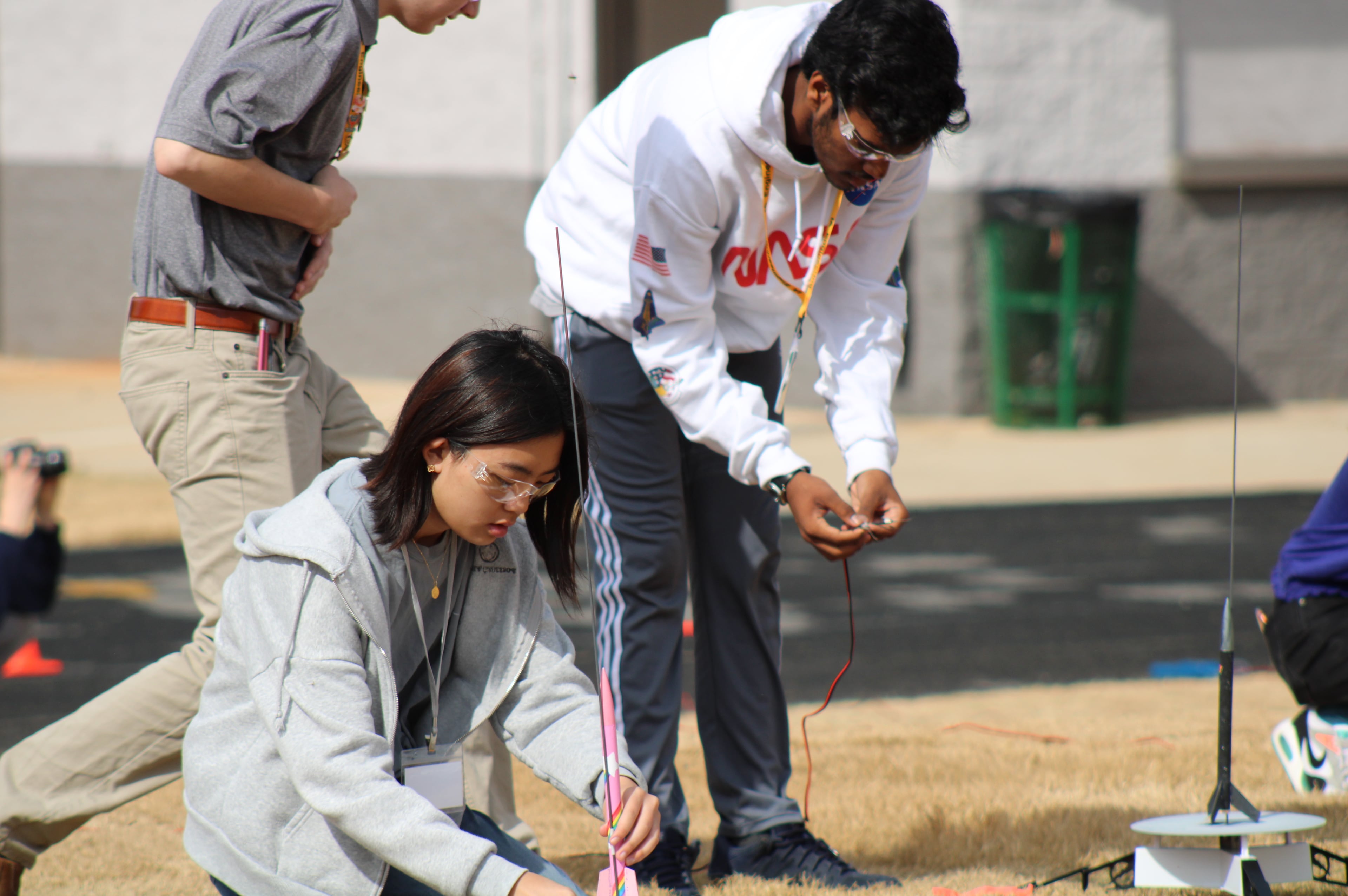Students tackle violence issues

Toledo Gilmore, a ninth grader at the Fulton Leadership Academy, has noted a change in the East Point school since late last fall. That’s when he became part of a student ambassador corps tasked with fostering a safer and more welcoming space for all the 250 male students in grades six through 12.
“I’m seeing a lot less violence and more people opening up about how they feel,” said Gilmore. “The culture doesn’t feel as violent as it was, and it can get pretty violent in an all-male school.”
Gilmore’s role is one element of the “Incite Hope, Not Violence” program that brings speakers and sets up workshops that encourage students to modify their behavior. The idea was introduced by the school’s superintendent, Richardean Anderson, who was concerned about students returning to the classroom after COVID lockdowns.
“We knew we needed to put something in place with a strong message to address the types of violence in our community,” she said.
FLA board member Joyce Lewis introduced Anderson to the Youth Hope-Builders Academy, a school-based, violence prevention program run by the Interdenominational Theological Center in southwest Atlanta.
“We bring in specialists from various parts of the community to talk about the impact of violence,” said Lewis. “The intent is young people will take this information and share it with their peers in a way that peers will listen.”
The ITC program supported the school’s efforts to be designated a No Place for Hate. Counselor Leticia Jones said both programs blended well.
“We’ve been able to marry the two to bring robust programming and education to our school,” she said. “We started the conversations last fall, and I’ve noticed by my boots-on-the-ground approach a greater level of accountability among students.
“If they see someone acting with inappropriate or violent behavior, they’re having conversations and holding each other accountable. They’re beginning to understand that we all have a story, and if a peer is angry or upset, something might have triggered that. They’re less quick to judge and more thoughtful about what might be going on at home,” said Jones.
Students have taken what they’ve learned through guest speakers, focus groups and workshops and put it into action. A recent presentation on microaggressions spurred announcements, a bulletin board and a comic strip. Gilmore wrote, created and edited a video about the topic.
“The changes have been student-driven,” said Jones. “They’ve really taken a hold of this and are now starting to look at ways to expand and run it better next year. My favorite thing is seeing the bandwidth of empathy growing.”
Gilmore notes that more students are opening up to him and his fellow ambassadors on a range of issues from violence to bullying.
“That’s what I love seeing,” he said. “I grew up where there was a lot of gang and gun violence, and I like being able to come to school and help others who are going through the same thing. I like knowing I’m making difference.”
Information about the Fulton Leadership Academy is online at fultonleadershipacademy.net. Details about ITC programs are online at itc.edu.
SEND US YOUR STORIES. Each week we look at programs, projects and successful endeavors at area schools, from pre-K to grad school. To suggest a story, contact H.M. Cauley at hm_cauley@yahoo.com or 770-744-3042.


